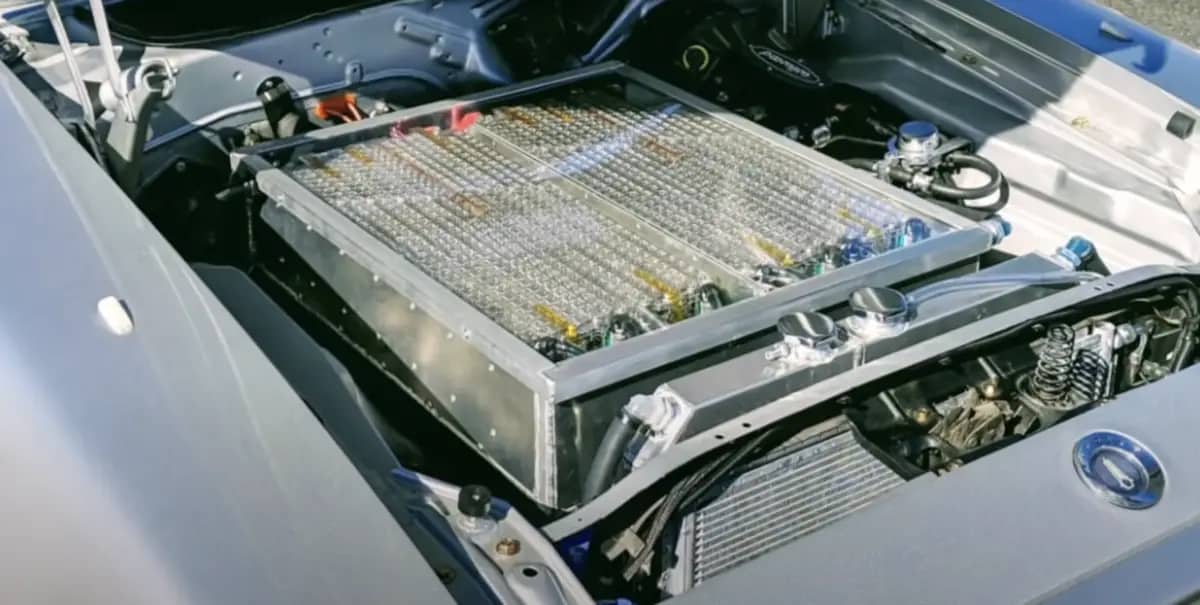Hot weather can cause EV batteries to degrade faster. But there are some simple things owners can do to help protect their cars.
Recurrent publishes battery health reports for used EVs, but also uses the data pulled from vehicles to study the impact of hot and cold weather on range and battery health. In a recent study of Tesla models, it was found that cars based in hot climate zones generally lose more range as they age than cars in cold climate zones.
That’s because higher levels of environmental heat contribute extra energy to the electrochemical reactions that make a battery work. This “can accelerate unwanted chemical reactions that age the battery prematurely,” according to Recurrent. The company has found that cold weather causes range loss but notes that cold temperatures are unlikely to cause permanent damage. The “generally accepted” threshold for accelerated battery degradation is around 86 degrees Fahrenheit
EV (Electric Vehicle) batteries can indeed degrade faster in hot weather, and this degradation can lead to reduced range and overall battery lifespan. However, there are several steps EV owners can take to mitigate the effects of hot weather on their batteries:
- Park in the Shade: Whenever possible, park your EV in a shaded area to reduce the exposure to direct sunlight and high temperatures. This can help keep the battery cooler and prevent excessive heat-related degradation.
- Use Climate Control Strategically: Using the air conditioning in your EV can help keep the cabin cool, but it also consumes energy from the battery. Pre-cool your EV while it’s still plugged in and charging to minimize the use of battery power for cooling once you’re on the road.
- Limit Fast Charging in Extreme Heat: High-speed DC fast charging generates more heat, which can be detrimental to the battery. If you’re on a long trip and need to use fast chargers, try to do so during cooler parts of the day or night when temperatures are lower.
- Maintain Proper Tire Pressure: Ensure that your tires are inflated to the manufacturer’s recommended pressure. Underinflated tires can increase rolling resistance, which can cause the battery to work harder and generate more heat.
- Avoid Extreme Driving: Aggressive driving, such as rapid acceleration and high-speed driving, can generate more heat in the battery. Drive conservatively to reduce stress on the battery.
- Limit Exposure to High Temperatures: If you live in an area with consistently high temperatures, consider using a car cover or parking your EV in a garage to shield it from the heat when not in use.
- Battery Management System: Trust the battery management system (BMS) of your EV. Modern EVs are equipped with sophisticated BMS software that manages the temperature and state of charge to optimize battery life. Avoid manually charging or discharging the battery excessively unless it’s necessary.
- Regular Maintenance: Follow the manufacturer’s recommended maintenance schedule for your EV, including battery maintenance if specified. Some EVs may require periodic coolant checks or other maintenance to keep the battery operating optimally.
- Software Updates: Keep your EV’s software up to date. Manufacturers often release software updates that can improve battery management and overall performance.
- Plan Charging: When planning long trips in hot weather, consider charging your EV to a slightly lower state of charge (SoC) before reaching your destination. This can help reduce the heat generated during the charging process.
Remember that while these tips can help mitigate the effects of hot weather on EV batteries. All batteries degrade over time. It’s a natural process, and the rate of degradation can vary depending on usage, environmental conditions, and battery technology. If you have concerns about your EV’s battery health, consult your vehicle’s manual or contact the manufacturer for specific guidance and recommendations.









